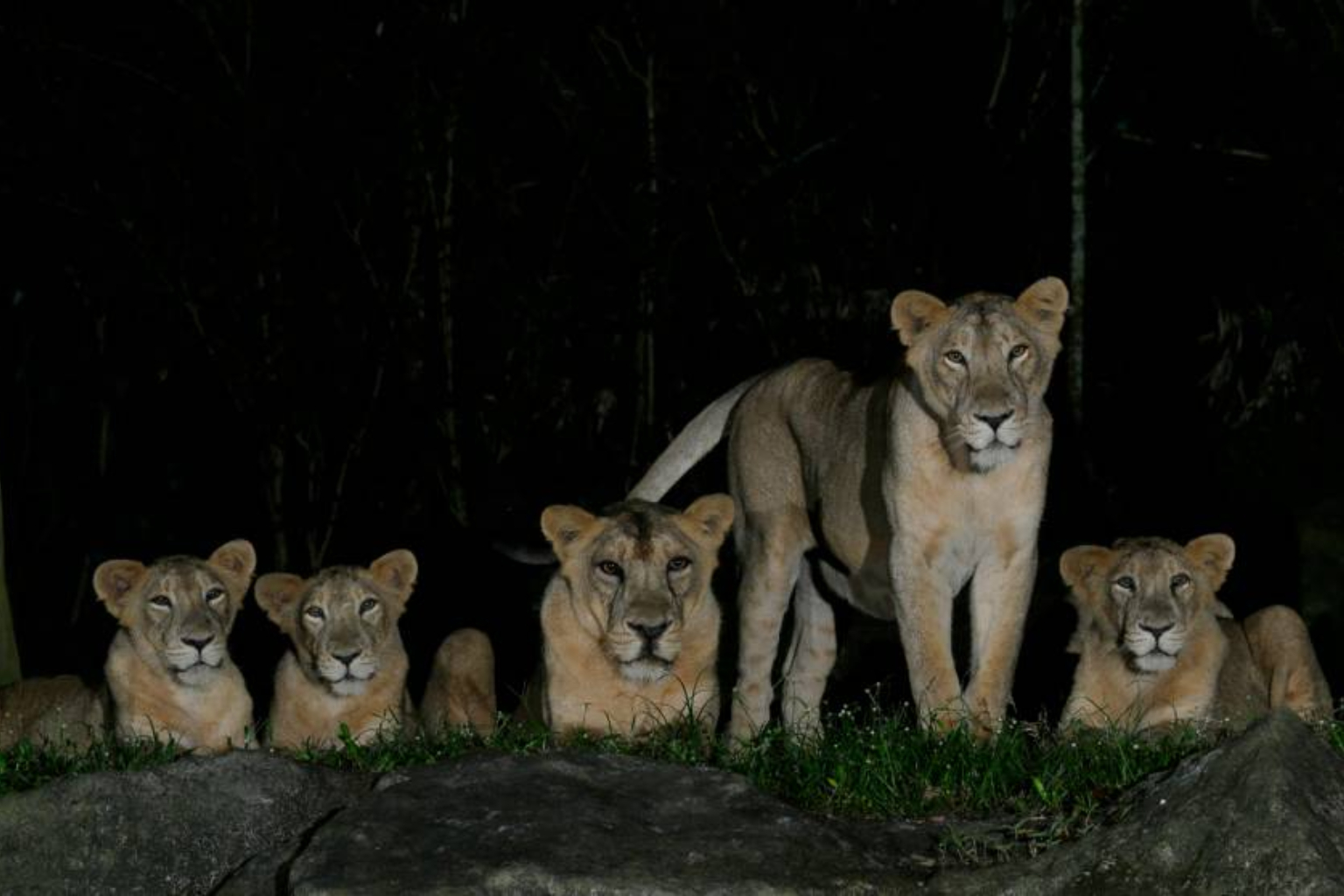4 Asiatic lions at Night Safari test positive for Covid-19 after exposure to infected staff
Sign up now: Get ST's newsletters delivered to your inbox

AVS has issued an order to isolate all nine Asiatic lions in their respective dens in the Night Safari.
PHOTO: MANDAI WILDLIFE RESERVE
SINGAPORE - Four lions at the Night Safari have tested positive for Covid-19, said the Animal and Veterinary Service (AVS) on Tuesday (Nov 9).
The government agency said the four Asiatic lions at the Night Safari, as well as one African lion at the Singapore Zoo, had exhibited mild signs of sickness including coughing, sneezing and lethargy on Saturday and Monday respectively.
This was upon exposure to staff from Mandai Wildlife Group who later tested positive for Covid-19. The AVS, which comes under the National Parks Board, tested samples from all four of the Asiatic lions, which came back positive.
Testing is ongoing for the African lion that had shown signs of sickness.
AVS has issued an order under the Animals and Birds Act to Mandai Wildlife Group to isolate all nine Asiatic lions and five African lions in their respective dens. This includes the five that have displayed symptoms.
AVS said it is working with Mandai Wildlife Group to closely monitor the health of the lions and will be testing samples from the remaining lions.
According to the World Organisation for Animal Health (OIE), there is currently no evidence that animals play a role in the spread of the disease to humans, although there have been sporadic and isolated reports in other countries of animals testing positive after coming into close contact with humans infected with Covid-19.
Dr Sonja Luz, vice-president of conservation, research and veterinary services at the Mandai Wildlife Group, said on Tuesday that the Asiatic lion exhibit along the tram route in the Night Safari has been closed since Sunday after the lions tested positive.
"All the lions remain bright, alert and are eating well. There has been evidence that animals in general do not fall seriously ill from the virus.
"We expect that the lions will make full recovery with minor supportive treatment. However, anti-inflammatory (drugs) and antibiotics may be prescribed if further treatment is needed," said Dr Luz.
She added that since the onset of Covid-19 last year, safety measures have been put in place to reduce the likelihood of asymptomatic animal carers passing the disease to susceptible species.
"In light of today's development, we are taking steps to further strengthen these handling protocols, including routine antigen rapid testing for the animal care team," said Dr Luz.
Animals can be infected with Covid-19, and infections among pet dogs, minks, raccoon dogs and zoo animals such as tigers and lions have been reported before.
Last month, 11 African lions at the Denver Zoo in the United States tested positive for the Delta variant. It was unclear how transmission had occurred.
A nine-year-old lioness at a zoo in Chennai, India, died in early June from coronavirus infection, local media there had reported. The feline was among nine lions that had tested positive for the virus, two of which were in critical condition, Chennai's The New Indian Express had reported then.
Two cases of human-to-cat Covid-19 transmission in Britain were reported in the journal Veterinary Research in late April, providing further evidence of such spread.
While there have been very few reports of animals passing back Covid-19 to humans, the World Health Organisation in May last year said there were reports of mink farmers in northern Europe being infected by coronavirus strains that had moved from humans to minks and back to humans.
Zoo animals in other countries have also received Covid-19 vaccinations, though infectious diseases experts have said it is not necessary to do so.
In January, apes living in the San Diego Zoo were vaccinated with an experimental vaccine by veterinary pharmaceutical company Zoetis, after a Covid-19 cluster was detected among a troop of gorillas living there.
Subsequently, big cats, bears and ferrets in the the Oakland Zoo in California were inoculated in July to prevent coronavirus spread among the animals there.


